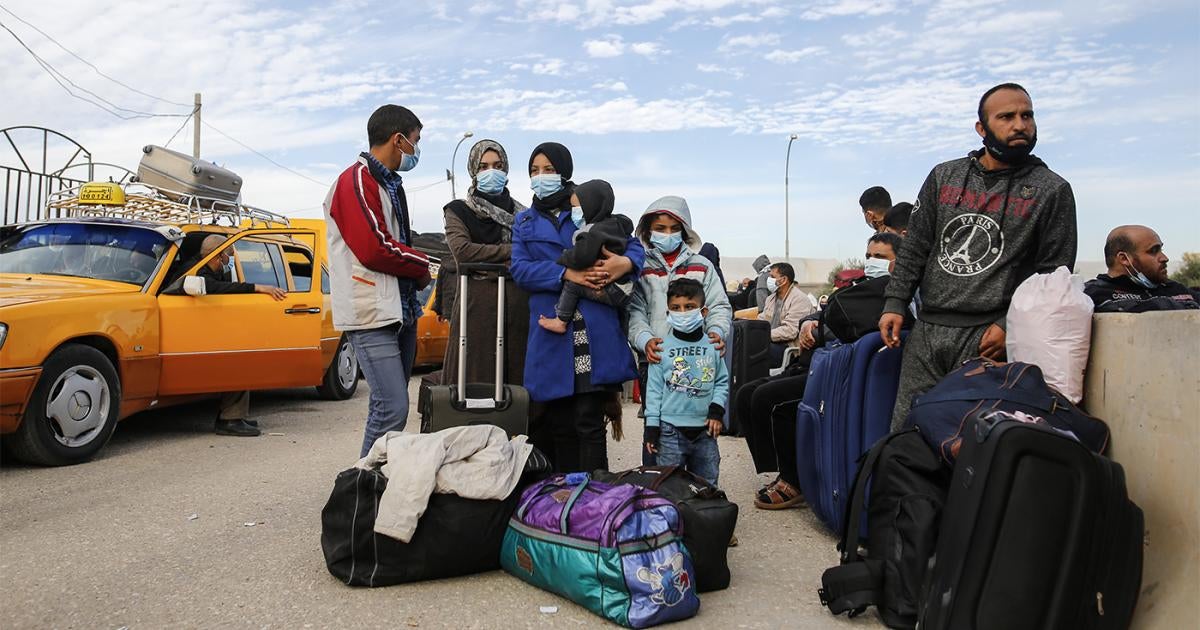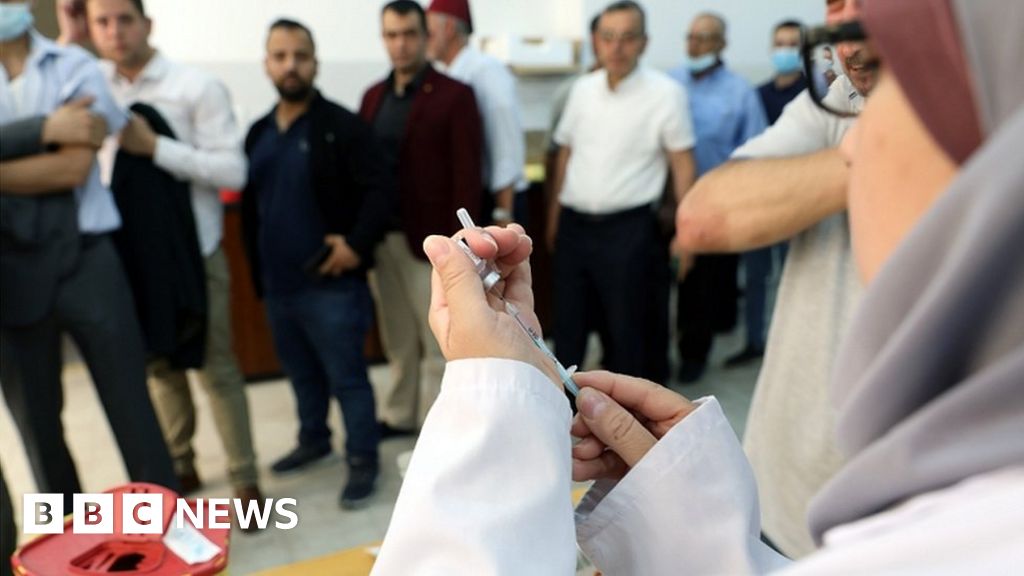Infrastructural challenges restrict the movement of physicians and medical supplies, and lack of efficient logistics prevents a coordinated effort by all healthcare service providers to provide the necessary primary care.
[21] Because all medicines must be sourced through Israel, the PA is unable to take advantage of lower prices often available in Arab countries.
[22]
The ongoing COVID-19 pandemic emerged in the State of Palestine on
5 March 2020. Currently,
7.32% of the population within the recognized State of Palestine have received COVID-19 vaccinations, which is a total 4.21% below the global average of
11.53% and
55.76% below the State of Israel's total vaccination of
63.08%, drawing praise to Israel's "
successful COVID-19 vaccine program". Such praise has been met with
severe criticism by human rights organizations, citing
Article 56 of the
Fourth Geneva Convention, which states that "the Occupying Power has the duty of ensuring and maintaining, with the cooperation of national and local authorities, the medical and hospital establishments and services, public health and hygiene in the occupied territory, with particular reference to the adoption and application of the prophylactic and preventive measures necessary to combat the spread of contagious diseases and epidemics." However, the recent escalation of violence between Israel and Hamas
between 10 May 2021 to 11 May 2021 exacerbated this disparity by
spiking cases in Gaza after Israel's bombardment of Gaza's "
central testing laboratory for COVID-19 at Rimal Clinic"; of over
2,300 housing units, driving
77,000 new Palestinians of Gaza into internal displacement and thus homelessness, further exacerbating the overcrowded conditions of Gaza; and through the 16 May 2021 Israeli airstrikes of the residential building, which resulted in the killing of
Dr. Ayman Abu al-Auf, physician chief of internal medicine at Gaza's Al-Shifa Hospital, where he also served as the director of coronavirus response efforts.









